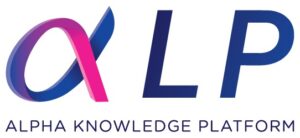KNOWLEDGE PLATFORM.
CBDC Consulting
TICKERTAPE
WHAT WE OFFER
CBDC Consulting

WHAT WE DO

TECHNOLOGY
WHY CHAVANETTE ?
We are creating the Financial Services Infrastructure for the Next Generation.
Finance has never seen a technological transformation of this magnitude.
Chavanette Advisors speeds adoption of emerging technologies to help regulators and financial services providers solve complex challenges.

Strong Commitment to Financial Inclusion

Expertise in Digital Banking and Financial Infrastructure Technology

Global Delivery Capability
What We Do
SERVICES
CBDC & Stablecoin Consulting Services
OFFERING VALUE AT THE VANGUARD OF CBDC & STABLECOIN IMPLEMENTATION
Chavanette Advisors are a trusted partner for central banks and financial services provider seeking to provide clients with smooth access to central bank-issued digital currencies (CBDC) and regulated Stablecoins. As an integral part of our Digital Currency Adoption Services, we provide strategic insights and guide you through the CBDC and regulated stablecoin adoption & systems integration process.
Advisory Services
ADVISORY FOR THE DIGITAL ECONOMY
SOLUTIONS
Alpha Knowledge Platform
The Alpha Knowledge Platform (αLP) is your ultimate resource and knowledge base for Central Bank Digital Currency (CBDC), regulated Stablecoins, and the financial technologies powering the Digital Economy.
Let αLP be your one-stop-shop for staying informed on digital currency progress, be the primary source for accessing key research papers and articles, and be your guide through this exciting once in a lifetime transformation of the financial ecosystem.
Central Banking 4.0 Studio
With the rapid development of regulated Digital Currencies globally, effective design and
usability testing are crucial for ensuring implementation and
organizational readiness.
Central Banking 4.0 Studio allows you to build and test
prototypes for rapid CBDC/Stablecoin design and usability testing. Designed for central banks, FSPs and
their key stakeholders in Digital Currency testing.
ADVANCING THE ADOPTION OF
DIGITAL CURRENCIES

TRUST • INTEGRITY • DELIVERY
Chavanette Advisors specialises in the creation and deployment of future-focused technological solutions.
We provide expert advice and project management to financial services and enterprise clients globally, engaging disruptive technologies that are transforming their operations and industries.
We help clients leverage emerging technology to solve complex business and technology problems, drive innovation, and produce market-leading products and services.
Articles
NEWSBLOG

TickerTape 170: Week of 01 Mar 2026
Welcome to TickerTape 170! Check back regularly for daily updates!

TickerTape 169: Week of 22 Feb 2026
Welcome to TickerTape 169! Bitcoin plunged below $64,000 as the Trump-backed USD1 briefly de-pegged amid an alleged coordinated attack. Major regulatory shifts include the OCC advancing GENIUS Act rules and the SEC offering stablecoin capital relief. Meanwhile, Meta prepares a 2026 stablecoin integration and the UK launches its regulatory sandbox.

TickerTape 168: Week of 15 Feb 2026
Welcome to TickerTape 168! Stripe’s Bridge unit won initial OCC approval for a national trust bank, embedding stablecoins into core payments. The Bank of Russia announced a dramatic policy shift to study a ruble-backed stablecoin. Meanwhile, the White House convened high-stakes meetings on stablecoin yields, and India launched its first CBDC-based welfare system.

TickerTape 167: Week of 08 Feb 2026
Welcome to TickerTape 167! The ECB outlined its 2029 Digital Euro roadmap, while the CFTC confirmed national trust banks can issue payment stablecoins. The NCUA proposed allowing credit union issuance, but White House talks on stablecoin yield remain stalled. Circle criticized the UK’s 40% reserve rule, and Uber expanded its global partnership with Adyen.








